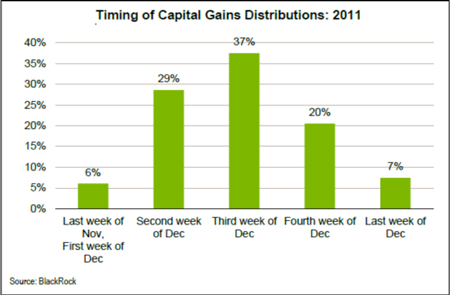
 As we approach year end, many people begin thinking about gifts – whether they be to their family or the charitable causes near and dear to their hearts. The mainstream media has focused plenty of attention on the upcoming income tax law changes, unless Congress acts before the end of the year. However, the media has not focused as much attention on the impending changes to our estate tax law which many would argue is more confiscatory than the income tax.
As we approach year end, many people begin thinking about gifts – whether they be to their family or the charitable causes near and dear to their hearts. The mainstream media has focused plenty of attention on the upcoming income tax law changes, unless Congress acts before the end of the year. However, the media has not focused as much attention on the impending changes to our estate tax law which many would argue is more confiscatory than the income tax.
Let’s compare the current law to what will be put in place in 2013 if Congress does not act:
|
2012 |
2013 |
| Gift tax unified credit equivalent: |
$5,120,000 |
$1,000,000 |
| Gift tax annual exclusion per person: |
$13,000 |
$13,000 |
| Estate tax unified credit equivalent: |
$5,120,000 |
$1,000,000 |
| Top estate tax rate: |
35% |
55% |
| The generation-skipping transfer tax exemption: |
$5,120,000 |
$1,000,000 |
Therefore, if Congress does not choose to extend the current law, families might consider making sizeable lifetime gifts in 2012 to take advantage of a friendly tax policy. For example, wealthy families might choose to gift up to $5,120,000 during their life rather than at death if they believe that the credit equivalent will only be $1,000,000 in the future. This $5.12M transfer can occur without gift tax to the donor (a parent in this example) or the donee (perhaps children). By way of example, the difference between making a gift of $5.12M in 2012 or dying with $5.12M in 2013 could result in a savings of close to $1,500,000 in future estate taxes! And, that figure would double to over $3,000,000 if both husband and wife use their $5.12M equivalent.
Annual exclusion gifts are another way to give money (by families of all wealth levels) to family members throughout the year. Essentially, you can gift up to $13,000 to any number of people each year without gift tax consequences. For example, we are working with a client who wishes to gift $13,000 to his two children and two grandchildren for a total gift of $52,000. Because no one person will receive more than $13,000; there are no gift tax issues. If you need another reason to be thankful you are married: Married couples can double the above amounts as you and your spouse both can gift $13,000.
Another type of gift that is popular near year end is the charitable gift. And for purposes of this article, I am addressing substantial gifts. There are three main issues to consider when making a charitable gift (I assume that you have the charitable intent – meaning you want to benefit the organization or cause). First, you need to be comfortable with the affordability of the gift. Never give a dollar away that you might need for yourself. Your personal financial plan can assist in helping determine the affordability. Second, you can give away any amount that you would like without estate or gift tax concerns. Really, you can give it all away. Third, there are restrictions on how much you may deduct for INCOME tax purposes. The income tax deduction details are outside of the scope of this article so please consult your tax preparer for additional information.
A couple of specific charitable gifting strategies include the IRA Charitable Gift and the Donor Advised Fund. Unfortunately at this time the IRA Charitable Gift law has not been reenacted after expiring in 2011. There is some hope, however, that we might see an end of the year extension. The second charitable gifting strategy or vehicle is the the Donor Advised Fund that I wrote about June 25, 2012, and I still think it is one of the best-kept secrets for those charitably inclined.
On a final note, sometimes folks (and their advisors) get caught up or side tracked trying to save taxes via gifting. Ideally, your gifting strategy is about transferring values (personal & family) and not just asset values. If we can be of help putting together a gifting plan that reflects your values feel free to call or email.
The information contained in this report has been obtained from sources considered to be reliable, but we do not guarantee that the foregoing material is accurate or complete. Any information is not a complete summary or statement of all data necessary for making an investment decision and does not constitute a recommendation. Any opinions are those of Center for Financial Planning, Inc., and not necessarily those of RJFS or Raymond James.

 The holiday season is the perfect antidote to the sadness of yet another beautiful fall ending. Once the last leaves have fallen off of the trees and the smell of them burning in our fire pits has wafted away, it is promptly replaced with good food, family and the smell of something baking in my oven. The holiday season is an exciting time of the year with many of us frantically buying Christmas presents, and some even planning New Year’s celebrations. However, in the middle of the holiday hustle and bustle, it is important to stop and put your taxpayer hat on.
The holiday season is the perfect antidote to the sadness of yet another beautiful fall ending. Once the last leaves have fallen off of the trees and the smell of them burning in our fire pits has wafted away, it is promptly replaced with good food, family and the smell of something baking in my oven. The holiday season is an exciting time of the year with many of us frantically buying Christmas presents, and some even planning New Year’s celebrations. However, in the middle of the holiday hustle and bustle, it is important to stop and put your taxpayer hat on.










